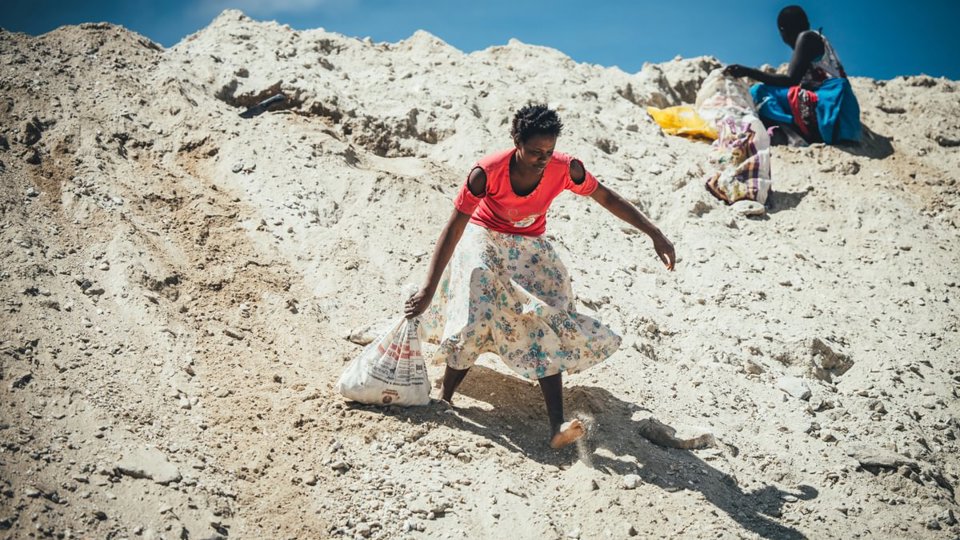Quarries of the past – quarry scavengers
East Kenya
Life couldn’t have been tougher for these women. Widowed and working in quarries with no support system, they were barely surviving. There was no safe way to carry out this work – we had to get them out. We’re supporting Commonwealth Business Women Africa to train them in other industries and find sustainable employment elsewhere. Our aim is to make their working lives safer and more rewarding.
Watch our films
Our 2025 documentary, Quarries of the past, highlights the progress made and improved working conditions. Watch our first film, Rocks of despair, to find out what working life was like for the quarry scavengers.

Why this project
The Masai women of East Kenya are highly skilled in livestock farming, embroidery and bead making. But they have had to leave their traditional industries because of a three-year drought, which has led to the demise of their livestock.
They are widows of men who have died herding cattle and working in quarries. Their only outlet is to scavenge for rocks in the waste quarries and sell them to jewellery makers. Death in quarries is common, with the women buried by landslides.
They earn $1 at most for a 10-hour rock-sifting day – but money needed for basic food is double this. After work, the women raid public dumps for scraps of food to feed their family.
Project goals
These are based on the risk assessment recommendations for a safer and healthier working life for the quarry scavengers and include both short- and long-term targets. You can download the risk assessment at the bottom of this page.
Support the workers and community to make the transition from informal to formal economy.
Eliminate the risks of the quarries and current working practices by removing workers from this environment. Do this by galvanising support, investment and training from partners, governments and interested parties.
Educate and train the workers on new opportunities and how to utilise their advanced skillsets on safer, healthier and higher-income ventures.
“My mum... was moving the top soil to access the stones. The sand walls collapsed on her. The soil contained large stones and there was no time for her to step aside to avoid impact. The stones crushed her feet, breaking her bones. She is now dependent on me too."
Irene
- Job role
- Quarry scavenger
Who is involved
- Commonwealth Business Women Africa (CBW-Africa)
- Commonwealth Enterprise and Investment Council (CWEIC)
- Directorate of Occupational Safety and Health Services, Kenya
- Equity Bank
- Fishmonger women and quarry scavengers
- Government of Kenya
- IOSH consultants
- Local IOSH members
- Masai elders
- Workplace Safety Professionals Association of Kenya
Progress so far
- Local occupational safety and health experts and IOSH members conducted an impartial risk assessment to assess the current conditions (November).
- CBW-Africa has sent a food parcel to be distributed among the women (December).
- Ten sewing machines secured for the women to use (March).
- Identified five acres of land to lease for regenerative agriculture and carried out soil investigation (April).
- An Elder donated land in Kajiado to empower the women working in the quarries (April).
- The women transitioned to the formal economy and formed co-operatives. This means the workers are better protected (September).
- Land acquired for the quarry scavengers to live and grow food, with bore holes for water access (October).
- Secured a building for the women to work in away from the quarries for sewing and product creation (January).
- Women trained to produce fish flies and cat toys rather than scavenge for rocks for higher incomes and a safer working environment (January).
- Further training provided on how to use the sewing machines and make high-quality products for resale (February).

Get involved
We welcome your support in helping people stay safe at work. It can change the lives of the most vulnerable workers. Find out more about these projects and the work we are doing.
 IOSH
IOSH